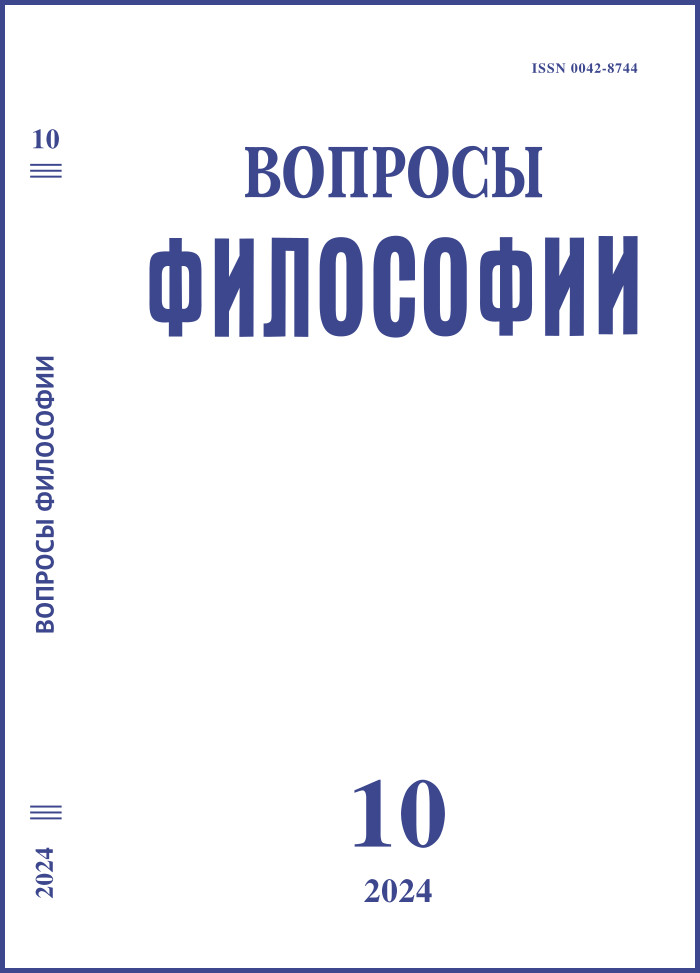Philosophical Ideas of N.N. Strakhov in the Context of Contemporary Problems of Historical Memory
DOI:
https://doi.org/10.21146/0042-8744-2024-10-92-98Keywords:
historical memory, collective memory, experience, comprehension, N.N. Strakhov, philosophy of scienceAbstract
Historical memory is one of the key problems in contemporary philosophy of history, political philosophy, and social philosophy. Philosophers and humanities scholars discuss its possible specific characteristics based on the contexts of their fields of knowledge, but the contentiousness of this phenomenon persists despite their intellectual efforts. To identify new contexts for interpreting historical memory and to reveal new perspectives for understanding its modes of existence in culture and society, the authors turn to the history of Russian philosophy, within which a unique attitude towards history as a fundamental basis of humanitarian knowledge was formulated (unlike the Western tradition of the philosophy of science, where history is generally treated as a relativizing factor). The focus of the authors is on the intellectual legacy of the Russian philosopher Nikolai Nikolaevich Strakhov, whose concept of the philosophy of science and understanding opens up new opportunities for interpreting “historical memory”.
The authors immerse the problem of historical memory in the following contexts of Strakhov’s philosophy: 1) science as a cultural phenomenon, 2) ethnic psychology, and 3) existential themes that reveal the specificity of communication among 19th-century Russian philosophers, their methods of preserving historical memory, and transmitting its meanings to future generations. Special attention is given to two different interpretations of the concept of “experience” in N.N. Strakhov’s philosophy (as the empirical basis of scientific research and as “life experience” aimed at expanding the horizon of understanding reality)

